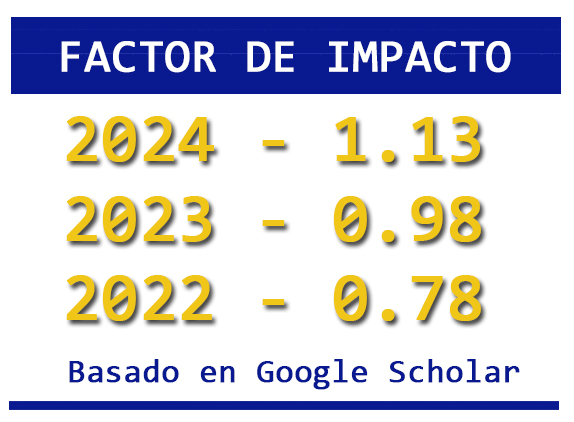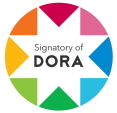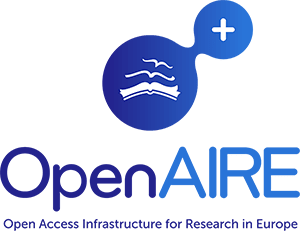Agile Methodology for Project Management in the “XX” Technology Solutions Company
DOI:
https://doi.org/10.36790/epistemus.v12i25.84Keywords:
Project Management, Agile Methodologies, Scrum Methodology, Technology SolutionsAbstract
This research focused on the design of Agile Methodology based on Scrum for the Project Management Area in the Technology Solutions Company “XX”, for which the research question was formulated: how to design the Agile Project methodology based in Scrum for the Technology Solutions Company “XX” for the year 2018 ?, which allowed through the interaction of the variables to acquire the capacity to offer value to the final products and agility in their development.
The methodology consisted of a descriptive-correlational design, from the correlation the interaction of the research variables was carried out: Project Management and Agile Project Methodology based on Scrum. To achieve the above, a descriptive analysis was defined, in order to characterize the identification of the current process of the Company. As a second item, the analysis of the characterization of the current processes and the implementation of the Scrum Methodology to define the optimal...
out.
Downloads
References
Alaimo, D. M. (2013). Proyectos agiles con Scrum: Flexibilidad, aprendizaje, innovacion y colaboracion en contextos complejos. Buenos Aires: Kleer.
America Learning & media. (2010). Soluciones tecnológicas innovadoras. Obtenido de http://www.americalearningmedia.com/edicion-007/82-innovacion/422-soluciones-tecnologicas-innovadoras
Dingsoyr, et. al. (2019. A decade of agile methodologies: Towards explaining agile software development. Journal of Systems and Software Volume 85, Issue 6, June 2012, Pages 1213-1221 DOI: https://doi.org/10.1016/j.jss.2012.02.033
Gido, J., Clements, J., & Baker, R. (2017). Administración exitosa de proyectos (Sexta ed.). (M. P. Suarez Moreno, Trad.) Ciudad de Mexico: Cengage Learning.
Gonzales, L., & Linders, B. (2014). Obteniendo valor de las retrospectivas agiles. Leanpub.
Hansen, B. (13 de junio de 2016). Wrike. Obtenido de https://www.wrike.com/es/blog/la-importancia-de-la-gestion-de-proyectos-preguntas-y-respuestas-con-robert-kelly/
Hundermark, P. (noviembre de 2009). Un mejor Scrum. Recuperado el agosto de 2017, de 42 Agile: http://www.agile42.com/en/agile-info-center/do-better-scrum/
Menzinsky, A., López, G., & Palacio, J. (2016). Scrum Manager.
Microsof. (2017). Información general sobre Hyper-V. Obtenido de https://msdn.microsoft.com/es-es/library/hh831531(v=ws.11).aspx
Netec. (2017). Scrum, prácticas para trabajar colaborativamente. It Training , 17.
Palacio, J. (2008). Flexibilidad con Scrum, principios de diseño e implementación de campos de Scrum.
Ponce et.al. (2014). Pruebas de aceptación orientadas al usuario: contexto ágil para un proyecto de gestión documental. // Ibersid. 8 (2014) 73-80. ISSN 1888-0967. DOI: https://doi.org/10.54886/ibersid.v8i0.4146
Prozess group. (2017). Procesos de Scrum. Obtenido de http://www.prozessgroup.com/procesos-de-scrum/
Rasnacisa y Berzisaa (2016). Method for Adaptation and Implementation of Agile Project Management Methodology. Procedia Computer Science 104 ( 2017 ) 43 – 50. doi: 10.1016/j.procs.2017.01.055 DOI: https://doi.org/10.1016/j.procs.2017.01.055
Scrum Manager Body of knowledge. (2017). New New Product Development Game. Obtenido de https://www.scrummanager.net/bok/index.php?title=New_New_Product_Development_Game
SCRUMstudy™. (2016). La Guía para el cuerpo de conocimiento de Scrum (Guía SBOK™). Phoenix, Arizona.
VMware vSphere. (2017). VMware vSphere, ediciones de Enterprise y Enterprise Plus. Obtenido de https://www.vmware.com/files/es/pdf/VMware-vSphere-Entreprise-Edition-Datasheet.pdf
Downloads
Published
How to Cite
Issue
Section
License

This work is licensed under a Creative Commons Attribution-NonCommercial-NoDerivatives 4.0 International License.
The magazine acquires the patrimonial rights of the articles only for diffusion without any purpose of profit, without diminishing the own rights of authorship.
The authors are the legitimate owners of the intellectual property rights of their respective articles, and in such quality, by sending their texts they express their desire to collaborate with the Epistemus Magazine, published biannually by the University of Sonora.
Therefore, freely, voluntarily and free of charge, once accepted the article for publication, they give their rights to the University of Sonora for the University of Sonora to edit, publish, distribute and make available through intranets, Internet or CD said work, without any limitation of form or time, as long as it is non-profit and with the express obligation to respect and mention the credit that corresponds to the authors in any use that is made of it.
It is understood that this authorization is not an assignment or transmission of any of your economic rights in favor of the said institution. The University of Sonora guarantees the right to reproduce the contribution by any means in which you are the author, subject to the credit being granted corresponding to the original publication of the contribution in Epistemus.
Unless otherwise indicated, all the contents of the electronic edition are distributed under a license for use and Creative Commons — Attribution-NonCommercial-ShareAlike 4.0 International — (CC BY-NC-SA 4.0) You can consult here the informative version and the legal text of the license. This circumstance must be expressly stated in this way when necessary.
The names and email addresses entered in this journal will be used exclusively for the purposes established in it and will not be provided to third parties or for their use for other purposes.
























